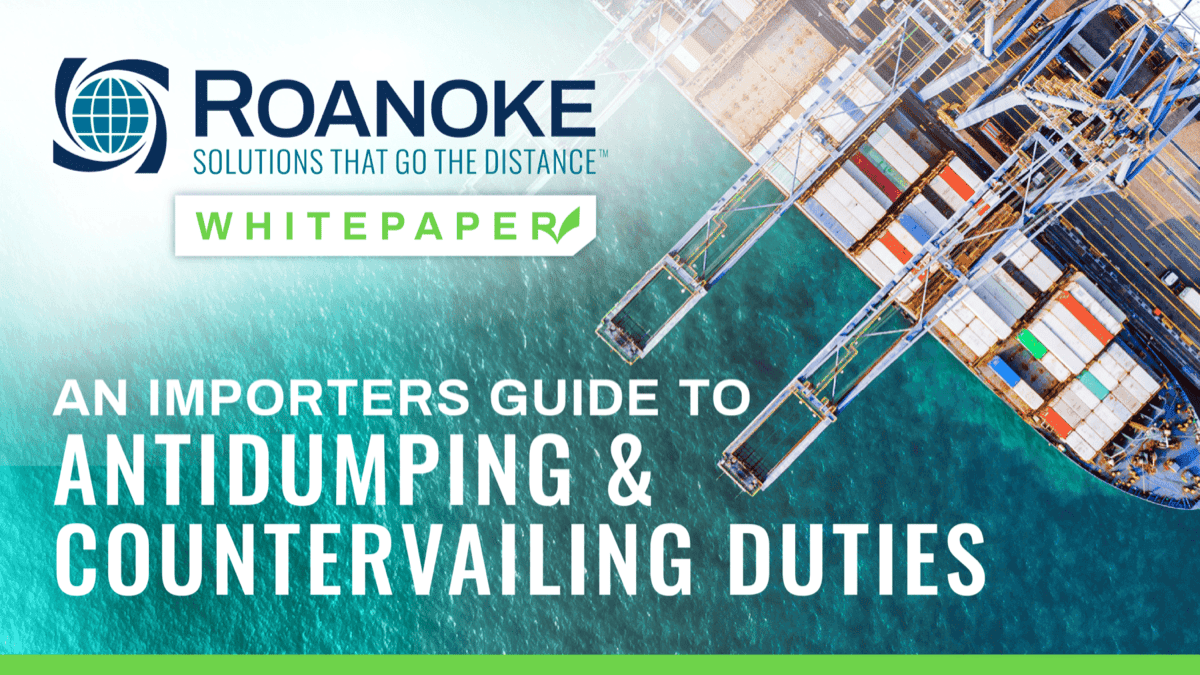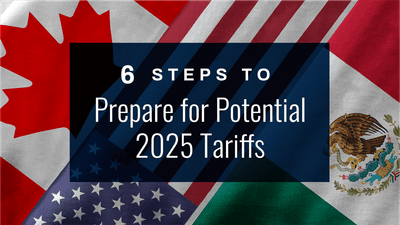July 05, 2023 | Customs Bonds
Roanoke Whitepaper – An Importer’s Guide to Antidumping & Countervailing Duties

Many Customs and trade laws carry significant financial consequences for importers, and of these laws, antidumping and countervailing duties pose some of the most dangerous ramifications. These provisions exist to protect domestic industries and producers from unfair foreign competition.
Under U.S. law, goods are subject to assessment of “ordinary duties” based on their classification under the Harmonized Tariff Schedule of the United States. However, U.S. law also defines certain situations in which goods are being sold to the U.S. at prices below cost of production or below “fair market value”. This is referred to as “dumping”.
Like ADD, CVD is designed to combat unfair advantages enjoyed by foreign suppliers. If a foreign government is paying a subsidy, bounty, or grant on exports of certain goods, the foreign supplier receiving the funds is able to price those goods lower than a U.S. supplier not receiving such payments from our government. The assessment of CVD in addition to ordinary duties offsets or “countervails” these subsidies.
But exactly what are they and what are the hidden financial exposures they create for importers and the sureties who provide their bonds? How does the ADD/CVD process work? What makes the ADD/CVD rates so volatile? Get the answer to these questions and many more by downloading this whitepaper!













